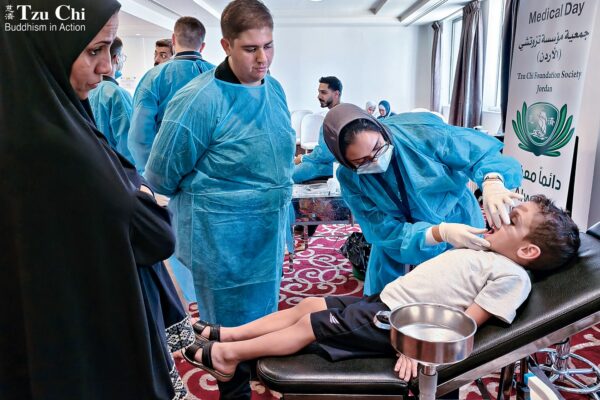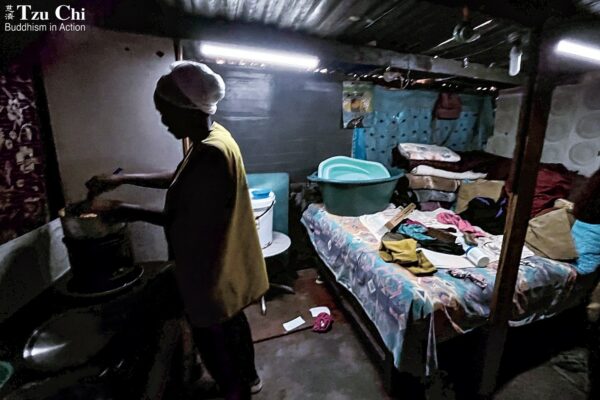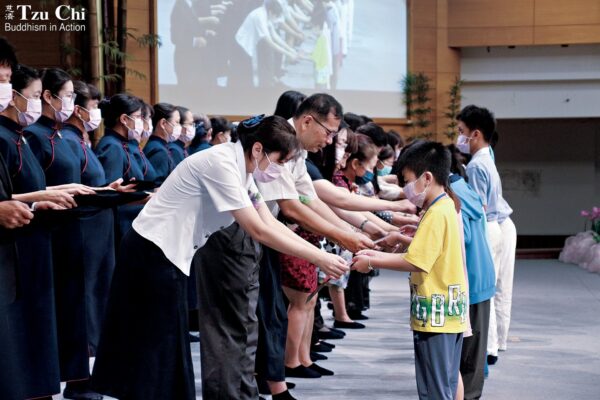By Jian Wen-ling
Translated by Wu Hsiao-ting
Photo by Hsiao Yiu-hwa

Happiness is a common desire of humanity. All our efforts are directed toward this end. People are happy when they feel positive about the overall state of their lives and assume that it corresponds to their ideal state of life.
But what if, after a lifetime of hard work, you are diagnosed with cancer? Would you still be able to feel happy?
I teach at the Institute of Religion and Humanity at Tzu Chi University, in Hualien, eastern Taiwan. I once met an elderly couple at a Tzu Chi recycling station in Kaohsiung, the biggest city in southern Taiwan. The husband had battled oral cancer for nearly ten years; his jaw and part of his gums had been removed as a result, preventing him from eating naturally. Even so, he and his wife reported to the recycling station every morning at eight and volunteered there until five in the afternoon. They took things apart there to be recycled or reused. Before they went to sleep each night, they made plans for the next day. Full of hope for the future, they planned what tasks they would tend to the following day, if they could live to see it. Though the husband suffered from a serious illness, he took good care of his heart and mind and gave selflessly, which led him to often experience joy and happiness. He was full of energy and extremely satisfied with his present life.
“To be able to give is a blessing!” the couple said. “It’s our loss if we don’t give whenever we can.” The happy smiles on their faces and their firm tones of voice showed their confidence about the value of their lives. They said they took up recycling because they wanted to leave a better Earth for future generations. They said that doing meaningful work made them feel they were living worthwhile lives. They cared less about how long they could keep on living, but more about whether they could make the most out of their lives. Their children and grandchildren all worked and lived out of town, so they had channeled their love of family into a selfless dedication to the environment, into a determination to protect the Earth for future generations.
Doing everything mindfully is their way to cultivate spirituality. “Take good care of your heart and mind,” they shared. “Be upright and don’t harbor selfish intentions when doing good. Only when your heart is in the right place can you walk on the right path.” The husband said he used to squander a lot of time in meaningless chatter and gossip with others, but that was in the past. Now he had found meaning and purpose in his life through his volunteer work with Tzu Chi, via his environmental protection efforts, so he dedicated himself wholeheartedly to the good cause. Before my interview with them came to an end, the couple said in unison that a person will never feel ill if their mind is completely on what they are doing. People who are industrious have no time to fall sick, they said.
When you are so focused on every task at hand that your mind rises above any physical discomforts, that it rises above the bondage of life and death, then you will be able to contribute the best you can and taste the kind of happiness that transcends aging, sickness, and death.



